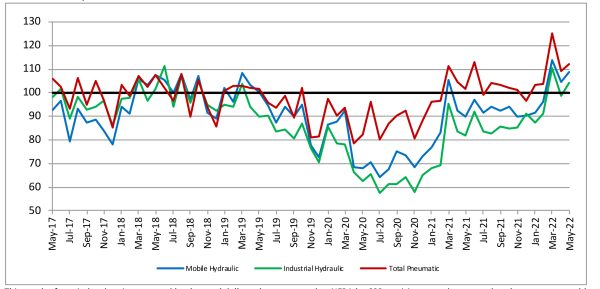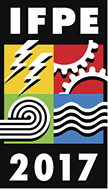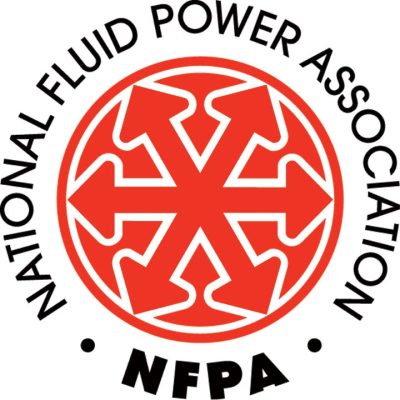NFPA Board Continues Focus on Growing the Fluid Power Workforce
 by Eric Lanke, NFPA CEO
by Eric Lanke, NFPA CEO
As our Chairman Jeff Stuart expressed earlier this year, NFPA and its Board of Directors are increasing its focus on a set of clear, high-level objectives—what we’re coming to refer to as “ends” statements, because they describe the major ends or outcomes we wish to achieve. Of the six statements currently identified, three of them deal exclusively with what the NFPA membership consistently ranks as its number-one challenge: growing the fluid power workforce:
- NFPA fosters awareness and involvement of middle and high school students, helping them understand fluid power’s potential as a technology and choose fluid power as a career path.
- NFPA helps increase the number of technically trained people capable of integrating and applying fluid power, and connects them to careers in the fluid power industry.
- NFPA supports universities in the development of fundamental fluid power knowledge and connects our industry to an increasing number of scientific and engineering leaders in our field.
At their most recent meeting in October 2015, the NFPA Board again deepened its focus in these three areas, recognizing both our growing success in each and advancing several new program concepts that could help move the needle even farther.
Fluid Power Challenge
This program for middle school students continues to grow and has established itself as our primary outreach activity to young people, introducing them to fluid power technology and careers in the fluid power industry. Last year, 1,450 middle school students participated in 14 Fluid Power Challenge events, where they built fluid power mechanisms out of simple materials and operated them in a series of timed competitions, and 2,369 additional middle school students participated in Fluid Power Challenge-related classroom activities at 28 schools. A growing number of NFPA members are running Challenges in their local communities to open doors with school districts and make ties to local technical schools, where many of the Challenge events are held. As we look to the future growth of this program, we’ll be launching a new Fluid Power Challenge website and online community, where we can more readily build a nationwide network of teachers, students, and parents interested and excited about fluid power as a pathway to STEM education and careers.
High School Fluid Power Challenge
With this success at the middle school level, we have recognized the need and will be developing a companion program for the high school environment. Students first exposed to fluid power in middle school need to encounter it again in high school, hopefully in some kind of hands-on challenge, not with the wooden structures and plastic syringes they used in middle school, but with the actual
fluid power components and systems in-use in the engineering marketplace they are quickly approaching. Many engineering competitions and curricula exist for these STEM-minded high school students—FIRST Robotics,
SkillsUSA, and Project Lead the Way being just a few examples—and our plan is to explore a possible partnership with one of those providers to greatly accelerate fluid power’s distribution into that educational landscape.
Center for Advanced Fluid Power Technical Education
NFPA’s focus on 2-year technical schools and community colleges is increasing substantially as we recognize the pressing need for more employees with the technical degrees and skills that these schools provide. For several years now, our Foundation has been awarding $25K grants to these schools to buy new fluid power trainers and build new fluid power curriculum around them, but the Board has now embraced an even more ambitious plan. We’re in the initial planning phases of an exciting new funding opportunity, in which significant dollars from the National Science Foundation would be used to create and support a nationwide network of 2-year technical schools and community colleges with dedicated fluid power education and training programs. As part of this program, regionally clustered industry partners would need to work inside of local high schools to promote fluid power and direct students to one of these “Centers for Advanced Fluid Power Technical Education,” coach them through their training period, and then hire them upon graduation.
Center for Compact and Efficient Fluid Power
NFPA’s partnership with the CCEFP, the network of fluid power research laboratories, academic faculty, graduate, and undergraduate students at seven universities, continues to grow and deliver results for the fluid power industry. Since its inception in 2007, the CCEFP has added more than 100,000 square feet of fluid power lab space to its universities, increased the number of fluid power advanced degrees awarded by those universities by more than 500%, increased the number of fluid power educators on those campuses by a factor of 10, and engaged more than 13,000 university students in a variety of workforce development programs, including
Pre-competitive Fluid Power Research Projects. Directed by industry to the topics most needed, these projects help build fluid power infrastructure at CCEFP schools and engage promising students in the study of fluid power. To date, 225 individual projects have been funded, enabling more than 250 students to earn their Masters or PhD degrees. Forty-five percent of these students go on to work in the fluid power industry.
Fluid Power Scholars Program. An internship program where industry-selected candidates receive fluid power “boot camp” training before working at the company location for the summer. To date, 59 students have participated in this program, with more than 75% going on to work in the fluid power industry.
Fluid Power Courses. Fluid power lab exercises, textbook chapters, and online training developed by CCEFP professors are offered across the nationwide network of undergraduate mechanical engineering programs.
National Fluid Power Engineering Challenge. Building on this success, we are now exploring support and expansion of a fluid power-themed national engineering challenge, to be conducted by teams of undergraduate engineers at our nation’s universities. Many of these competitions exist, and have become an engaging staple of the undergraduate engineering environment, giving students both exciting opportunities to explore and apply their developing skills and to connect with particular technologies and industries. For several years, NFPA member Parker Hannifin has sponsored and supported one of these competitions—the Chainless Challenge—and the NFPA and the CCEFP are now working in partnership with Parker to see how the program can be repositioned under an NFPA umbrella, allowing many more fluid power companies to get engaged. The goal would be to significantly raise the national profile of fluid power in these engineering universities and get hundreds more budding engineers engaged in our industry.






